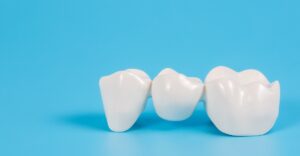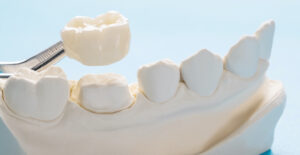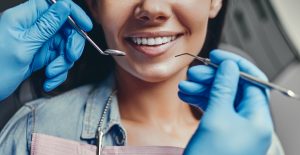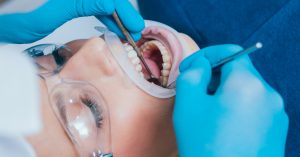Bad breath or halitosis is a common oral problem, when a person’s breath contains an unpleasant odor. This odor may be detected occasionally or be persistent, depending on the cause. A lot of people don’t realize they have bad breath until told by someone else.
Causes of bad breath
Bad breath is primarily caused by poor oral hygiene, but can also can be caused by retained food particles or gum disease.
All people have millions of bacteria normally inhabiting the mouth. An excessive build-up of these bacteria and their products are often the cause of bad breath. The mouth’s warm, moist conditions make an ideal environment for these bacteria to grow. About 80 percent of bad breath is caused by something in the mouth.
Bad breath can be caused by the following:
- Poor dental hygiene — Infrequent or improper tooth brushing and flossing can leave food particles to decay inside the mouth
- Infections in the mouth — Periodontal (gum) disease
- Respiratory-tract infections — Throat infections, sinus infections, lung infections
- Certain food products — Garlic, onions, coffee, cigarette smoking, chewing tobacco
- Dry mouth — This can be caused by salivary gland problems, medications, chemotherapy for cancer or by "mouth breathing"
- Systemic illnesses — Diabetes, liver disease, kidney disease, lung disease, sinus disease, reflux disease and others
- Miscellaneous – Stress, dieting, age, hormonal changes etc.
Gum disease and bad breath
A very common cause of bad breath is gum disease. Many patients may have advanced gum disease before they realize it, as it is usually painless and progresses slowly. That is why regular hygiene visits to the dental office are of paramount significance. Your dentist will advise you on the treatment options if you have gum disease.
Importance of saliva in relation to bad breath
Saliva is the key ingredient in your mouth that helps keep the odor under control because it helps wash away food particles and bacteria, the primary cause of bad breath. When you sleep, however, salivary glands slow down the production of saliva allowing the bacteria to grow inside the mouth. Regular brushing and flossing habits alleviate this problem.
Food Habits and bad breath
Very spicy foods, such as onions and garlic, and coffee, may be detected on a person’s breath for up to 72 hours after digestion. Onions, for example, are absorbed by the stomach and the odor is then excreted through the lungs.
Preventing bad breath
It is important to practice good oral hygiene, such as brushing and flossing your teeth at least twice a day. It is equally important to clean your tongue with your toothbrush or a tongue scraper, a plastic tool that scrapes away bacteria that builds on the tongue. If you have dentures or a removable appliance, such as a retainer or mouthguard, clean the appliance thoroughly before placing it back in your mouth. Mouth rinses are effective in temporary relief of bad breath, but make sure you understand the source of the odor and tackle the problem at its root.
Given below are some everyday tips one can follow to fight bad breath.
- Drink plenty of water: Drinking water throughout the day can help cleanse teeth of excess bacteria and food debris. Bad breath can sometimes be caused by food particles caught in the teeth and drinking water will help rinse away odor-causing particles.
- Chew sugarless Gum: Chewing sugarless gum after meals can help keep bad breath away. Saliva production increases during chewing and this can help neutralize acid production and rinse food particles from the mouth. It is important to make sure that the gum is sugar-free.
- Regular brushing after meals: Brushing and flossing at least twice a day can help keep your mouth healthy and prevent odors. Cleaning the tongue with a toothbrush or tongue scraper after meals can also help alleviate odors.
Bad breath quick-check
Here is an easy test to see if you have bad breath : Lick the back of your hand three times, wait for about a minute and then smell it. If you get a peculiar odor, you probably have bad breath.












